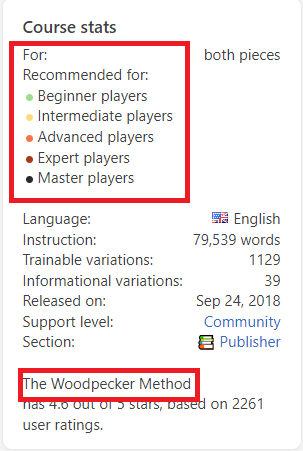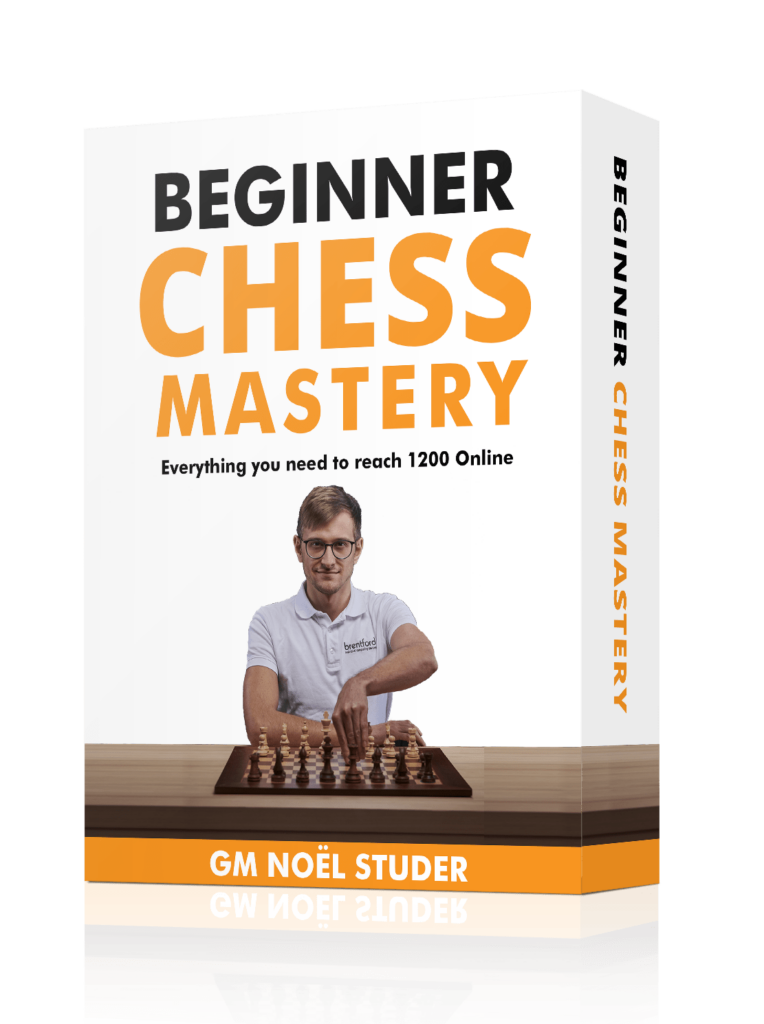An optimal learning process needs the right information in the right order.
Kids need to learn addition, but first, they need crucial information about the numbers and how to count.
2+1 is unsolvable if you don’t know that after 2 comes 3. Sadly, that’s how most adult improvers are taught nowadays. Random information in random order.
Why Beginners Feel Overwhelmed
Back when I started playing chess, my dad taught me the rules and then sent me to a club. Coaches assessed my knowledge, then put me in a group and taught me step-by-step what I needed to know.
Learning felt so easy! Everything made sense.
Nowadays, new players stumble on the game and immediately get bombarded with endless recommendations.
Everyone on the internet has an opinion on what you need to do; nearly nobody guides you on the how and when.
“Watch this opening course,” “You need to know how to checkmate with Bishop+Knight,” and “Solve tactical puzzles,” you read while you barely know how the pieces move.
This results in you studying things you would need to study at 1800 when you are 500.
Wrong Beginner Chess Course Suggestions
Who can blame you? After all, if you filter for “Beginner” on platforms like Chessable, one of the first courses that comes up is the Woodpecker Method (alongside some Lifetime Repertoires…).

A book I worked on when I was an Internation Master! Filtered for BEGINNERS???
You try to solve these puzzles (nobody ever taught you how to do this in the first place…) and obviously fail. After a few more attempts, lots of money spent on courses that aren’t for you, and a lot of failures, you conclude:
“I am not smart enough for chess improvement.” Ouch. That really hurts.
The reality is you just got the wrong material to work with.
Have you ever seen a math book “for beginners and Ph.D. students?”.
Hell no! Because it makes no sense. In chess, Books, and courses are frequently sold to Beginner Players and Master Players alike.
Showing a chess position to a beginner and a master, one of two things happens:
A) The beginner players will be overwhelmed and don’t understand anything
B) The Master players will fall asleep.
Mostly, it is the former. Just writing this makes me upset. How is this even a thing?
By the way, I’m using beginners because it is the craziest example. But the same applies if you are 1800 FIDE and study a book or course aimed at 2300+. You will be confused, get a lot wrong, and give up on yourself.
Learning Chess Done Right
Optimal Chess learning for Beginners should look like this:
- #1: Rules of the game
- #2: Piece interactions (attacks, captures, threats, checks, etc.)
- #3: Strengths & Weaknesses of each piece
- #4: Opening Principles (NOT THEORY!)
- #5: Introduction to Chess Strategy
- #6: Basic Tactical Motifs & Checkmate Patterns
- #7: Basic Checkmates in the Endgame
- #8: How to learn step-by-step
One step builds upon another. Even if you mix up the order of these steps, people might be confused. Learning about strategy without knowing the strengths & weaknesses of each piece doesn’t make sense.
This is like making a football team start line-up without knowing the players’ position. Having Messi in your team is great, but if he is the goalkeeper, you have a big problem.
Introducing Beginner Chess Mastery

For the past 3 years, I have interacted with countless beginners suffering from random information at random times.
Chess is often seen as a proof of intellect.
So not only did they waste their money and time, but they seriously doubted their intellectual abilities just because nobody gives them a structured way of learning the basics.
So, I decided to take things into my own hands and create it myself. On March 19th, I will launch my second course,
Beginner Chess Mastery Everything you need to know to reach 1200 Online.
Why did I spend months reading beginner books and creating this course? Because there wasn’t any single course I could wholeheartedly recommend for Beginners.
Some are okay, but most are too big, incomplete, and not really for beginners. I really hope this course will set an end to random information at random times confusing Beginner Chess Players.
If you are around 1200 Online or below and would like to learn everything you really need to know in a sensible order, you can now get on the waitlist for the course.
Until the launch of the course, every Tuesday, I will send out a separate behind-the-scenes newsletter for people interested in beginner chess mastery.
You will learn what is inside this course, if it is a great fit for you, and how much it will cost. Then, on March 19th, I will release it to the World.
But I’m Not A Beginner
If you are already higher rated than 1200 Online, this course probably isn’t for you. Let me assure you I’m doing my best to create more amazing courses in the future.
I just saw too many beginners suffer from being overwhelmed and confused. So, I had to offer a simple solution to their problem.
And if you ever want to offer someone the joy of chess, this course is a great gift for anyone wanting to get into the game of chess.
I can’t let you go on your well-deserved weekend without a takeaway for all rating levels:
Whatever rating you are at right now, before committing to a new resource, shortly ask yourself
“Am I trying to learn addition before learning to count?”.
The right information only helps you if you are at the right point to receive it. Keep that in mind at all times.
Keep improving, Noël
PS: Learn more about Beginner Chess Mastery here.